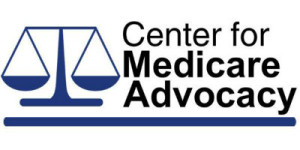 Glenda Jimmo is a name you should know.
Glenda Jimmo is a name you should know.
Mrs. Jimmo, who is blind and had her leg amputated due to diabetes, was the lead plaintiff in a lawsuit brought against the Centers for Medicare and Medicaid Services (CMS) in 2011 by the Center for Medicare Advocacy on behalf of beneficiaries and seven national organizations representing people with chronic conditions. Mrs. Jimmo requires a wheelchair and needs weekly home health services for her complex conditions. However, she was denied Medicare coverage for services on the grounds that she was unlikely to improve.
This rule of thumb—that Medicare services for skilled nursing or therapy should be discontinued when a patient “plateaus” or will no longer improve—is wrong.
The “Jimmo” lawsuit, which was funded by our long-time colleagues and partners at The Atlantic Philanthropies, settled the matter and CMS has reiterated that improvement is not required to obtain Medicare coverage for skilled care in skilled nursing facilities, home health care, and outpatient therapies, and to a lesser extent in inpatient rehabilitation hospitals.
Coverage does not turn on the presence or absence of potential for improvement, but rather on the need for skilled care.
Despite the settlement, Medicare beneficiaries who have Parkinson’s disease, have suffered strokes, or have other long-term or debilitating conditions and need rehabilitation services, continue to report being denied access to services that will keep them from further deteriorating. As part of the John A. Hartford Foundation’s commitment to improving care for older adults, we supported the Center for Medicare Advocacy this summer in bringing together representatives from the geriatrics, nursing, physical therapy, and other health professional communities, along with advocates, industry representatives, and policymakers in a convening in Washington, DC to discuss this problem.
The group identified barriers to implementation of the Jimmo settlement and began to develop strategies to ensure that patients receive the skilled nursing and therapy services they need to maintain as much health, function, and independence as possible.
The barriers to successfully implementing the Jimmo settlement are many. The erroneous rule of thumb regarding the need for improvement to continue nursing and therapy services has been ingrained into the culture of many professions and organizations. As one physical therapist put it, clinicians are often addicted to improvement. “Isn’t that what you want to see, that your patient improves and gets better with your help?” she suggested during her presentation to the Jimmo Council.
Maintaining a patient’s status or preventing a more precipitous decline is just not how many clinicians think about their work.
Of course, CMS is concerned about opening the floodgates to paying for additional services and the potential for abuse, so documentation about the need for maintenance therapy or nursing services is required. However, many clinicians are unclear about how to appropriately document maintenance therapies and fear the hassle of denials and audits. Electronic health records even inhibit this documentation, defaulting to language and billing codes that specifically refer to improvement and progress.
Fortunately, the group that gathered in DC also developed a set of recommendations to help clinicians understand the Jimmo settlement and to work toward systemic change so that older adults with these debilitating conditions get the services they need and deserve. In addition to calling on CMS to continue and strengthen its outreach, the group will work with the health professions membership associations represented at the convening to provide them with education and resources.
The group agreed to collect more stories that document both the challenges and horrors for older people and their families when maintenance services aren’t delivered, as well as the successes seen by nurses, therapists, and referring physicians when their patients don’t decline as they otherwise might without their care.
There is a long way to go to increase awareness about the Jimmo settlement and the need to ensure that vulnerable older patients (and younger people with disabilities) get needed maintenance services. The group in DC gathered by the Center for Medicare Advocacy fortunately committed to continuing to work together as the Jimmo Implementation Council.
For all our Health AGEnda readers who are nurses, therapists, nursing home physicians, home health agency staff, policymakers, and others who serve the interests of people like Mrs. Jimmo, we hope you have learned something about this important issue.
Even better, we encourage you to join the Jimmo Implementation Council and help us improve care for older adults through better understanding and implementation of the settlement that bears her name.
